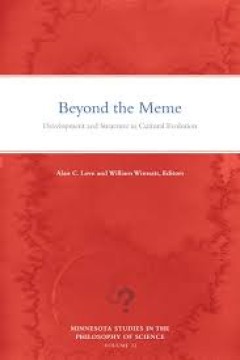Filter by

BIM-Based Life Cycle Sustainability Assessment for Buildings
The management of the life cycle of large publicly owned social housing complexes requires a large amount of human and technological resources, the optimization of which is a desirable and shared objective. This article proposes a workflow for the enhancement of these management processes based on BIM (Building Information Modelling), a methodology capable of integrating architectural infor…
- Edition
- -
- ISBN/ISSN
- 9783036555201, 9783036555195
- Collation
- 190
- Series Title
- -
- Call Number
- -

Bilingual Language Development: The Role of Dominance
It has long been established that bilingual speakers are rarely balanced in their languages so that one language is dominant. The contributions to Bilingual Language Development: The Role of Dominance focus on the potential effects of language dominance on the competence and processing of bilinguals, covering a large variety of language combinations and domains. Important aspects of such wo…
- Edition
- -
- ISBN/ISSN
- 9782889459889
- Collation
- 286
- Series Title
- -
- Call Number
- -

Big Data in Organizations and the Role of Human Resource Management
Big data are changing the way we work. This book conveys a theoretical understanding of big data and the related interactions on a socio-technological level as well as on the organizational level. Big data challenge the human resource department to take a new role. An organization’s new competitive advantage is its employees augmented by big data.
- Edition
- -
- ISBN/ISSN
- 9783631719046
- Collation
- 237
- Series Title
- -
- Call Number
- -

Biblical Theology of prayer in the Old Testament Biblical Theology of pray…
Prayer is a major topic within Christian theology. The biblical text has various references to various recorded and reported prayers. In fact, references to prayer are found within the rich diversity of the various books, corpora and genres of Scripture. As can be expected, much has been written about prayer in the biblical text.
- Edition
- -
- ISBN/ISSN
- 9781779952721
- Collation
- 258
- Series Title
- -
- Call Number
- -

Biblical Theology of Life in the New Testament
This publication deals with A Biblical Theology of Life based on the New Testament. It forms the second of a two volume publication on A Biblical Theology of Life. These two volumes trace the concept of life throughout Protestant canon, working with the final form of the biblical books in Hebrew (vol. 5) and Greek (vol. 6) Scripture. This is done by providing the reader with a book-by-book over…
- Edition
- -
- ISBN/ISSN
- 9781776341788
- Collation
- 268
- Series Title
- -
- Call Number
- -

Beyond the witch trials: Witchcraft and magic in Enlightenment Europe
Beyond the witch trials provides an important collection of essays on the nature of witchcraft and magic in European society during the Enlightenment. The book is innovative not only because it pushes forward the study of witchcraft into the eighteenth century, but because it provides the reader with a challenging variety of different approaches and sources of information. The essays, which cov…
- Edition
- -
- ISBN/ISSN
- 9780719066603
- Collation
- -
- Series Title
- -
- Call Number
- -

Beyond the Meme
Interdisciplinary perspectives on cultural evolution that reject meme theory in favor of a complex understanding of dynamic change over time How do cultures change? In recent decades, the concept of the meme, posited as a basic unit of culture analogous to the gene, has been central to debates about cultural transformation
- Edition
- -
- ISBN/ISSN
- 9781452961569
- Collation
- -
- Series Title
- -
- Call Number
- -

Bioeconomy and Global Inequalities : Socio-Ecological Perspectives on Biomass…
This open access book focuses on the meanings, agendas, as well as the local and global implications of bioeconomy and bioenergy policies in and across South America, Asia and Europe. It explores how a transition away from a fossil and towards a bio-based economic order alters, reinforces and challenges socio-ecological inequalities. The volume presents a historically informed and empirically r…
- Edition
- -
- ISBN/ISSN
- 978-3-030-68943-8
- Collation
- 338
- Series Title
- -
- Call Number
- -

Beyond the Institution: Transforming the Learning Environment in Architectura…
New and cutting-edge forms of pedagogy such as distance learning, design-build, collaborative learning, and peer-to-peer practices are increasingly calling conventional teaching and learning environments, in architecture and other design disciplines, into question
- Edition
- -
- ISBN/ISSN
- 9783868599947
- Collation
- 268
- Series Title
- -
- Call Number
- -

Biodiversity-Health-Sustainability Nexus in Socio-Ecological Production Lands…
This is an open access book. It is a compilation of case studies that provide useful knowledge and lessons that derive from on-the-ground activities and contribute to policy recommendations, focusing on the interlinkages between biodiversity and multiple dimensions of health (e.g., physical, mental, and spiritual) in managing socio-ecological production landscapes and seascapes (SEPLS). This bo…
- Edition
- -
- ISBN/ISSN
- 9789811698934
- Collation
- 286
- Series Title
- Satoyama Initiative Thematic Review
- Call Number
- -
 Computer Science, Information & General Works
Computer Science, Information & General Works  Philosophy & Psychology
Philosophy & Psychology  Religion
Religion  Social Sciences
Social Sciences  Language
Language  Pure Science
Pure Science  Applied Sciences
Applied Sciences  Art & Recreation
Art & Recreation  Literature
Literature  History & Geography
History & Geography